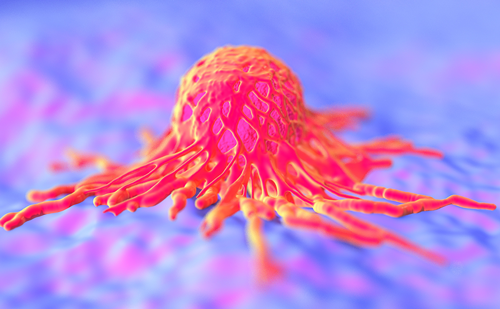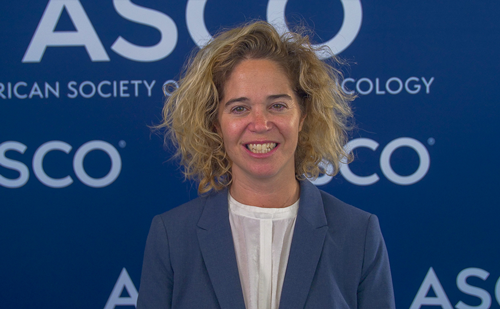
Professor Paolo A. Ascierto is Director of the Unit of Melanoma, Cancer Immunotherapy and Development Therapeutics at the National Tumor Institute, Naples, Italy. He obtained his medical degree from the University of Naples, the same institution where he subsequently earned his board certification in oncology. He went on to serve consecutive positions at the National Tumor Institute as a postdoctoral fellow and then as Vice Director of the Department of Clinical Immunology.
Professor Ascierto’s research interests include the genetics and proteomics of melanoma, assessment of new molecular markers for tumor progression, biochemical and immunological monitoring, immunotherapy and vaccination treatments in solid tumors and combination strategies with I-O. He has been the principal investigator in over 100 clinical trials and is an active member in several international medical societies. He has been President of the Fondazione Melanoma Onlus since 2010 and President of the Campania Society of ImmunoTherapy of Cancer (SCITO) since 2013. He has been a member of the Steering Committee of the Society of Melanoma Research (SMR) since 2016 and a member of the board of directors of the Society of Immuno Therapy of Cancer (SITC) since 2018. He is an active reviewer for several international journals, as well as an associate editor for onco-immunology for Annals of Oncology, chief section editor for the combination strategies section of Journal of Translational Medicine, and associate editor of Journal of ImmunoTherapy of Cancer. He is the author of over 400 publications in peer-reviewed journals.
What are your highlights of 2019?
As my main field of interest is skin cancers, my highlights of 2019 are within melanoma and cutaneous squamous-cell carcinoma. We have seen confirmation of the superiority of nivolumab to ipilimumab in stages IIIB-C/IV at 3 years follow-up in the adjuvant setting of melanoma. There have also been very interesting, innovative results from a randomised phase 2 German trial in resected stage IV patients with a superiority of the combination of ipilimumab and nivolumab compared to nivolumab monotherapy and no treatment.
In the metastatic setting, we have seen interesting 5 years overall survival (OS) data from target therapy, which confirmed a better outcome in patients with normal lactate dehydrogenase and low tumour burden. The CheckMate 067 update showed a 52% of patients still alive at 5 years and, lastly, the recent update from KEYNOTE 022, which showed a better OS in patients treated with the triplet dabrafenib-trametinib-pembrolizumab compared to dabrafenib-trametenib alone (2-yrs OS rate of 63% vs 52%; HR=0.64). Finally, cemiplimab confirmed an important role in the treatment of locally advanced and metastatic cutaneous squamous cell carcinoma.
What have been the major breakthroughs and data?
Some new data from I-O combination in solid tumors like the KEYNOTE 426 in first-line metastatic renal cell carcinoma showed a superiority of the combination of axitinib with pembrolizumab compared to sunitinib. The CheckMate 227 trial in non-small-cell lung carcinoma showed a good impact on OS by the combination of ipilimumab and nivolumab compared to chemotherapy. Some preliminary data from the combination of pembrolizumab and lenvatinib in hepatocellular carcinoma showed an overall response rate of more than 44%. I was also impressed by data from the BEACON study, which showed an better impact on OS from the combination of encorafenib/biimetinib/cetuximab in colorectal cancer patients affected by BRAF mutation compared to standard therapy.
How will these impact the future?
These will impact the future by increasing the long-term benefit in patients affected by those diseases.
What are the current hottest topics, and what do you hope to see in 2020?
I’m still waiting data from the MASTERKEY 265 study, the randomised phase III study, which compared the combination of T-VEC with pembrolizumab to pembrolizumab monotherapy. I hope 2020 will be the right year to present data from this trial. Moreover, I’m very eager to see data from two more randomised phase III studies with the triplet combination of anti-PD-1/PD-L1 with BRAF/MEK inhibitor compared to BRAF/MEK alone; the IMspire 150, which compared vemurafenib/cobimetinib/atezolizumab to vemurafenib/cobimetinib, and COMBI-I, which compared the triplet dabrafenib/trametinib/spartalizumab to dabrafenib/trametinib). We should able to see preliminary data at AACR or ASCO 2020.
Finally, in 2020 we should have preliminary results from SECOMBIT study, a study about the sequences of target therapy and immunotherapy, which used encorafenib/binimetinib and ipilimumab/nivolumab combos. At ESMO 2020 we should be able to report data about safety and median progression-free survival (mPFS). mPFS will be interesting, mainly the ‘sandwich’ arm (the short course of target therapy followed by I-O at best response and not at progression).
2020 will be rich in new data from randomised phase II-III studies!
Please provide a brief summary of your current research interests.
My research interests include the genetics and proteomics of melanoma, assessment of new molecular markers for tumour progression, biochemical and immunological monitoring, immunotherapy and vaccination treatments in solid tumors, and combination strategies with I-O.
Support: No funding was received in the publication of this Insight article.
Published: 29 November 2019





